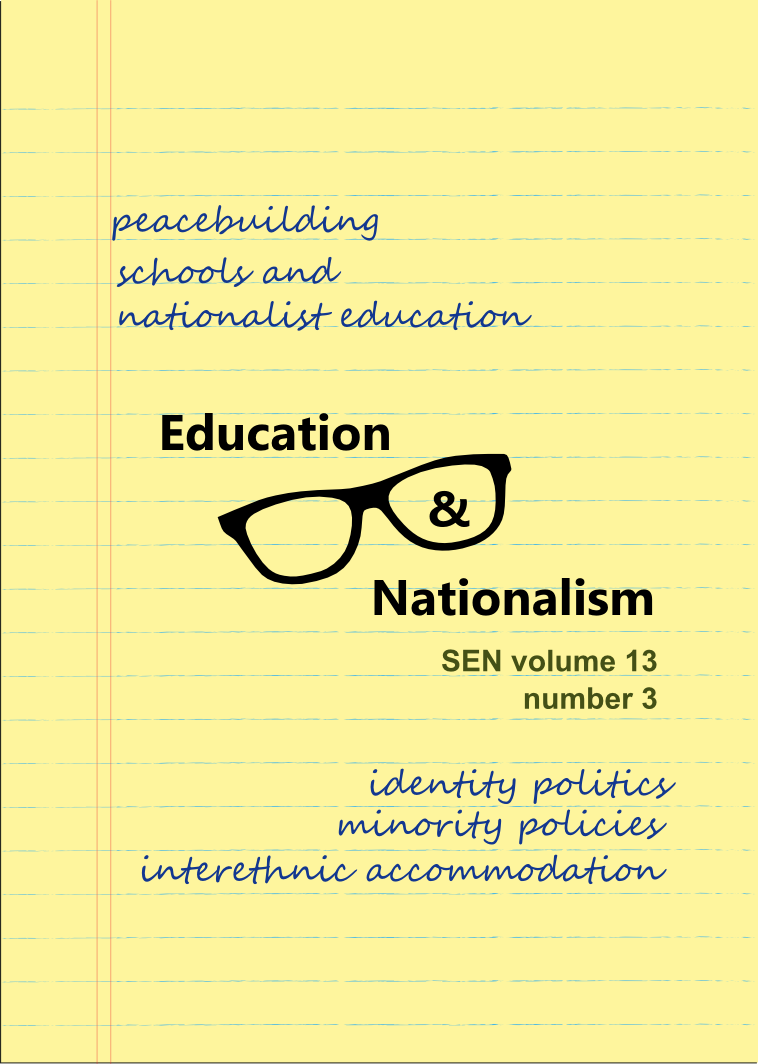 Read on for some SEN articles that reflect on some news items reported on the blog over the past several weeks:
Read on for some SEN articles that reflect on some news items reported on the blog over the past several weeks:
Landscapes of ‘Othering’ in Postwar and Contemporary Germany: The Limits of the ‘Culture of Contrition’ and the Poverty of the Mainstream, Aristotle Kallis, Volume 12, Issue 2, October 2012, pp. 387-407.
In the 1930s the National Socialist regime embarked on a chillingly ambitious and fanatical project to ‘remake’ German society and ‘race’ by deploying a peerless – in both kind and intensity – repertoire of ‘othering’ strategies and measures directed at the Jews, the Sinti/Roma, and non-conformist groups within the Third Reich. At the heart of this campaign was the notion of a ‘zero-sum’ confrontation between the nation/race and its perceived ‘enemies’: namely, that the existence of these ‘enemies’ within German society threatened the very foundations of the German ‘race’ and posed the gravest threat to its mere survival. To what extent can the experience of the 1930s aggressive, violent, and eventually murderous ‘zero-sum’ mindset provide crucial insights into contemporary discourses of ‘othering’, linked with the European radical-populist right but increasingly ‘infecting’ the social and political mainstream? The contemporary ‘ethno-pluralist’ framing of the discussion divulges the persistence of a similar ‘zero-sum’ mentality that is nurtured by socio-economic and cultural insecurity, on the one hand, and powerful long-standing prejudices against particular groups, on the other. The article explores this ‘zero-sum’ insecurity mindset in the anti-immigration ‘mainstream’ discourses in the Federal Republic of Germany, both before and after re-unification. It demonstrates how – in contrast to the postwar ‘culture of contrition’ with regard to the memory of the Holocaust – this mindset continues to be a powerful political and psychological refuge for societal insecurities that has an enduring appeal to significant audiences well beyond the narrow political constituencies of the radical right.
Post-communist extremism in Eastern Europe: The nature of the phenomenon, Othon Anastakis, Volume 1, Issue 2, September 2001, pp. 15-26.
The recent electoral gains of extreme right parties in many countries of Europe have made European citizens realise that the extreme right is not to be regarded exclusively as a fringe phenomenon but as a force that can penetrate mainstream democratic politics. The resilience and occasional rise of the radical right poses a serious challenge for social scientists and policy makers. Social scientists are called upon to examine the nature of the phenomenon, the factors conducive to the existence and resilience of the forces of extremism and the impact of far right political mobilisation within national societies and Europe, at large. Governments and policy makers for their part explore ways to marginalise these forces in order to sustain, in Western Europe- and consolidate, in Eastern Europe, democracy in the continent. But while there is ample analysis of the West European experience, there is an inadequate understanding of the conditions and circumstances that breed extreme right forces in Eastern Europe. In what follows, the paper will attempt to address the academic debate on the causes and nature of the contemporary East European extreme right. It will assess the relevance of a western oriented approach in the East European context. The article mostly refers to extremism in countries like Poland, Hungary, Czech Republic, Slovakia, Bulgaria and Romania. These countries are, by and large, functioning democracies, where extreme right parties compete in elections and in some of them are quite influential. All of these countries are applying to become members of the European Union, and this membership is subject to strict political criteria, requiring democratic principles, the rule of law and respect for human rights.
Intercultural Citizenship, Civic Nationalism, and Nation Building in Québec: From Common Public Language to Laïcité, Jean-François Dupré, Volume 12, Issue 2, October 2012, pp. 227-248.
This article analyses the current citizenship-nation building nexus in Québec in light of government publications and recent public discourses on ethnocultural pluralism and immigrant integration. First, the article surveys the changing relationship between Québécois nationalism and citizenship according to political circumstances in Québec, suggesting that debates over immigrant integration have played a central role in the creation of a civic Québécois identity, initially based on French as the public language and interculturalism. The article then analyses recent public debates surrounding ‘reasonable accommodation’ in Québec, and identifies a growing emphasis on laïcité – the secularisation of the public space – as identity marker. This article attributes this growing focus on secularism to dissatisfied nationalists seeking to reclaim the cultural prominence of the French Canadian majority in provincial institutions and press for measures aimed at enhancing Québec’s distinctiveness and autonomy within the Canadian institutional framework. On a more normative note, the article argues that while language nationalism is reconcilable with ethnocultural pluralism, recent discourses on the secularisation of the public space constrain the emergence of an openly pluralistic stance on national belonging in the province, and undermines the legitimacy of Québec interculturalism.
Reinterpreting the Past or Asserting the Future? National History and Nations in Peril – The Case of the Tibetan Nation, Anne-Sophie Bentz, Volume 6, Issue 2, September 2006, pp. 56-70.
This paper explores the idea that the importance of the past tends to become overwhelming when the nation is in peril. The Tibetan nation is one of those nations which is, or thinks it is, in peril; hence, Bentz contends, its constant need to assert its existence. I intend to examine how the history of Tibet has been transformed into a national history by discussing key historical events and relating them to the Tibetan interpretation as it developed in exile, particularly in India. With this Bentz aims to shed a new light on how national history, or, more precisely the (re)construction of a national history, can become instrumental in asserting a threatened nation’s existence and how this can affect the very content of the nation’s history.




